A recent operation in the Caribbean Sea, involving the Royal Navy and the U.S. Coast Guard, led to the interdiction of over 1,115 pounds of cocaine, valued at approximately $14.7 million.
The narcotics were intercepted by a U.S. Coast Guard law enforcement detachment deployed aboard the British Royal Navy ship HMS Trent.
This operation marks the first success of HMS Trent after returning to counter-trafficking duties, with Cmdr.
“Another success within 24 hours of Trent’s return to counter-trafficking operations continues to demonstrate the utility of this class of ship to support such activity. It relies on the involvement of every member of my team, and they can be proud of another significant haul,” said Cmdr. Tim Langford, commanding officer of HMS Trent.
These interdictions are also reliant on the close working relationship that exists between the U.S. Coast Guard and my team, supported from ashore by the Joint Interagency Task Force-South.”
The following assets and crews were involved in the interdictions:
- HMS Trent (P 244)
- U.S. Coast Guard Tactical Law Enforcement Team Pacific (PAC-TACLET) Law Enforcement Detachment (LEDET) 111
- Joint Interagency Task Force South (JIATF-South)
The Royal Navy’s participation in this mission is part of a larger cooperative effort to combat drug trafficking in international waters. The interdiction was supported by the Joint Interagency Task Force South (JIATF-South), which coordinates the detection and monitoring of illegal drug movements in the region.
The operation, says the Royal Navy, highlights the ongoing collaboration between the Royal Navy and the U.S. Coast Guard in maintaining maritime security in the region.
The seized drugs were offloaded in San Juan, Puerto Rico, and three individuals involved in the smuggling operation are set to face prosecution by the U.S. Attorney’s Office for the District of Puerto Rico.


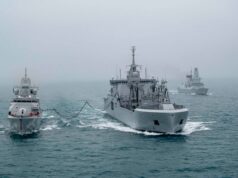
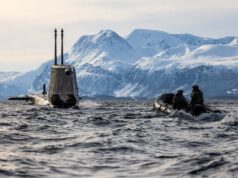
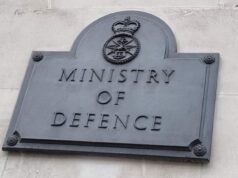
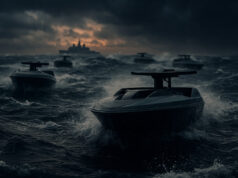
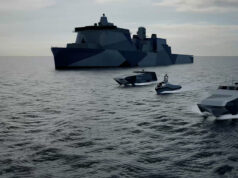
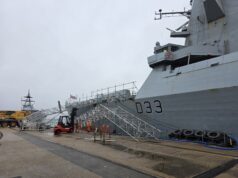

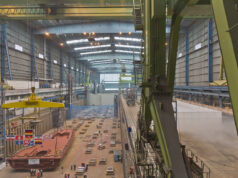

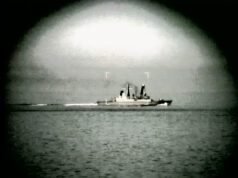

This is a battle that’ll never be won.
Lack of hangar and servicing ability really hits the utility of these vessels. I’d like an improved 3 when the time is right because they can make an excellent platform, beyond their weight.
I think most of the multinational fleet of surface vessels operating in the Caribbean are without an organic helicopter and rely of US Drug Enforcement to provide aerial surveillance. I believe the DEA air wing fields more than 100 fixed and rotary wing aircraft.
I’m not sure. The French and Dutch both deploy frigates iirc and when we send an RFA, it goes with rotary.
As it says in the article the enforcement activities are managed by a US group called the Joint interagency Task Force (South), which is led by someone from the US Coastguard. They have the use of a P-3 Orion. So it looks like you can run but you can’t hide :-). The UK, FR, NL and CA are partners who deploy a variety of ships. I did find a reference that the Dutch permanently deploy a Holland Class OPV which does carry a helo. Didn’t find info on what the MN deploy, although I do see they have a build program to construct substantial sized OPVs to replace their Avisos. I found a reference to Canada contributing HMCS Monkton, a Kingston Class coastal patrol ship. I think we are making a valued contribution with the rhibs and RM on Trent. Interesting though to read that both FR and NL see a need for their OPVs to be larger than the batch 2 Rivers; sort of a class between R2 and T31.
Party on the flight deck
It’s not appropriate to state “A British Naval ship”. The correct address is ” A Royal Navy ship”. Simple.